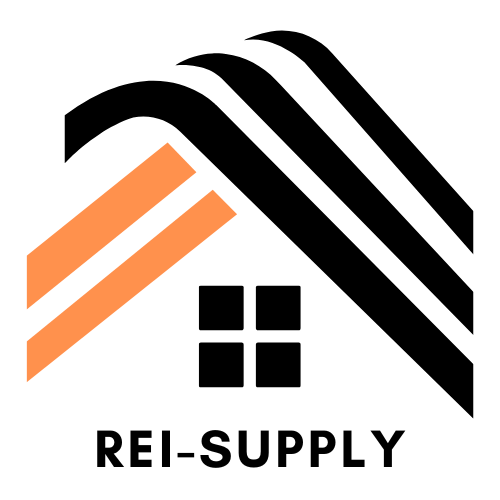Table of Contents
ToggleNavigating the world of home loans can feel like trying to solve a Rubik’s Cube blindfolded. Enter FHA loans, the friendly sidekick that promises to make homeownership a bit less daunting. With their low down payment requirements and flexible credit guidelines, these loans have become the go-to option for many first-time buyers. But before you dive in headfirst, it’s crucial to weigh the pros and cons.
While FHA loans can open doors to homeownership, they come with their own quirks and caveats. From mortgage insurance premiums that might feel like a pesky houseguest to potential limits on property types, understanding the full picture can save buyers from unexpected surprises. So, let’s break it down and see if an FHA loan is the key to unlocking that dream home or just another puzzle piece in the mortgage maze.
Overview of FHA Loans
FHA loans, backed by the Federal Housing Administration, cater to a broad spectrum of borrowers. Low down payment requirements, often as low as 3.5%, enhance accessibility for first-time homebuyers. Flexible credit guidelines make these loans attractive, allowing individuals with lower credit scores to qualify.
Mortgage insurance premiums are a critical aspect of FHA loans. Borrowers must pay these premiums, which safeguard lenders in case of default. Understanding these costs is essential as they impact monthly payments.
Property restrictions come into play with FHA loans. Certain property types, such as vacation homes or investment properties, qualify under different standards. Buyers need to ensure the chosen property meets FHA guidelines for approval.
Loan limits vary by region, influencing borrower options. In high-cost areas, the limits can be significantly higher than in rural locations. Checking the loan limit for a specific area can help determine affordability and eligibility.
Overall, FHA loans present unique benefits and challenges. While they simplify the path to homeownership for many, awareness of associated costs and restrictions plays a vital role in the decision-making process.
Pros of FHA Loans

FHA loans present several benefits that make them appealing for homebuyers. Notably, they offer significant advantages for first-time buyers or those with limited financial means.
Lower Down Payment Requirements
Lower down payment requirements make FHA loans attractive. Borrowers can secure financing with as little as 3.5% down. This accessibility lowers the barrier to homeownership for many. Compared to conventional loans, which often require 10% to 20%, FHA loans are much more forgiving. Additionally, gifted funds can be used for the down payment, providing further financial flexibility.
Flexible Credit Score Standards
Flexible credit score standards also benefit borrowers. An FHA loan typically accepts scores as low as 580, broadening eligibility for many. Individuals with credit scores between 500-579 can qualify with a 10% down payment. This leniency allows those recovering from financial setbacks to enter the housing market. Lower credit requirements stimulate homeownership among diverse demographics, fostering economic growth.
Competitive Interest Rates
Competitive interest rates characterize FHA loans. They generally feature lower rates than conventional mortgage loans. Homebuyers can save on monthly payments due to these lower rates, enhancing affordability. Lenders often view FHA loans as less risky, translating into better rates for borrowers. This advantage can result in substantial savings over the life of the loan.
Cons of FHA Loans
FHA loans come with several drawbacks that potential borrowers should consider. Understanding these cons can help in making an informed decision.
Mortgage Insurance Premiums
Mortgage insurance premiums, or MIP, attach to all FHA loans. Borrowers pay this fee for the life of the loan, increasing overall borrowing costs. Initial premiums typically range from 1.75% of the loan amount, which can be financed into the loan. Annual premiums also apply, varying based on the loan term and loan-to-value ratio. For instance, monthly payments can start at around 0.45% to 1.05%, adding to monthly expenses. These ongoing costs significantly impact affordability compared to conventional loans, where private mortgage insurance is often cancellable.
Loan Limits and Restrictions
Loan limits can affect eligibility and affordability. FHA loan limits vary by region, influencing how much borrowers can finance. As of 2023, limits range from $472,030 in low-cost areas to $1,089,300 in high-cost areas. Restrictions on property types exist, limiting options for those wishing to invest in properties or purchase second homes. FHA guidelines primarily focus on primary residences, which can hinder flexibility in property choices. Such constraints can quickly discourage buyers aiming for diverse real estate opportunities.
Lengthy Approval Process
Approval times for FHA loans can extend beyond average periods. It’s common for the approval process to take several weeks, sometimes longer than conventional loans. Delays often arise due to additional documentation requirements, such as proof of income and employment verification. Communication with lenders can also contribute to extended timelines. As a result, borrowers seeking quick closings may find this aspect frustrating. The lengthy process can complicate plans, especially for those needing to move promptly.
FHA loans offer a unique opportunity for many aspiring homeowners. Their low down payment and flexible credit requirements make them appealing for first-time buyers and those with limited financial resources. However potential borrowers must weigh these advantages against the drawbacks such as mortgage insurance premiums and property restrictions. Understanding these factors is crucial for making an informed decision. By carefully considering both the pros and cons FHA loans can serve as a valuable tool in the journey toward homeownership.





